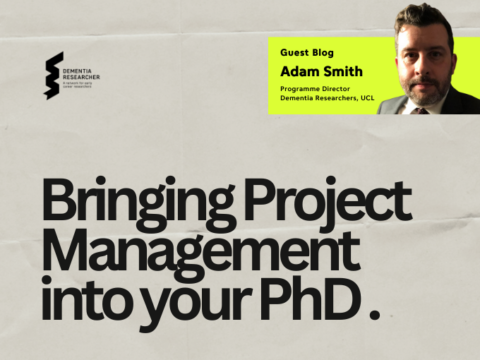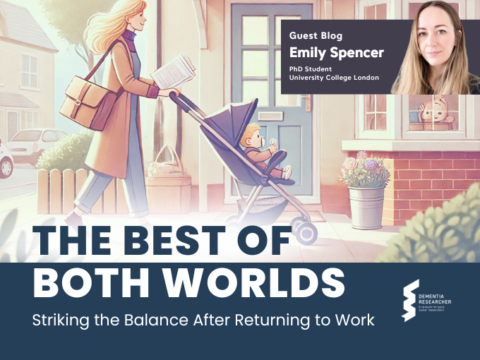Name:
Dr Ian Harrison
Job title:
Senior Research Fellow
Place of work / study:
Area of Research:
My work looks at the function of the glymphatic system in the brain, responsible for the clearance of protein solutes from the brain parenchyma. We’re investigating the role of this system in neurodegenerative disease, to see if it is responsible for the accumulation of misfolded protein in disease like Alzheimer’s and Parkinson’s, and test whether we can alter its function as a therapy in these disorders.
How is your work funded?
Two fellowship grants awarded in parallel, one from Alzheimer’s Research UK, one from Parkinson’s UK.
Tell us a little about yourself:
I’m dad to two wonderful little girls, Emilie (4) and Ayla (nearly 3) who are both keen little scientists. They’ve come for several visits to the lab at the weekends when I’ve needed to pop in to start/finish experiments. On the very rare occasion that I have any spare time in between Frozen sing-alongs and fort building, I try and get out for a run, or play the violin.
Tell us a fun fact about yourself:
I love dancing the Lindy Hop! Attending dance lessons started in the run up to mine and my (now) wife’s wedding, but we loved it and have continued to dance some 5 years later!
Why did you choose to work in dementia?
My paternal grandfather was diagnosed with Alzheimer’s when I was around 10 or 11. I remember being confused as to why there were no medicines available to make my grandad better. I continued in school, found an interest in biology, pharmacology, neuroscience, and dementia research seemed like the perfect fit for me when it came to my postgraduate research projects. My maternal grandmother was later diagnosed with Lewy Body dementia when I was studying for my MRes, and in fact studying Lewy body pathology in one of my lab rotations. I work in dementia in the hope that one day people and their loved ones will no longer have to suffer with this horrid disorder..
What single piece of advice would you give to an early career researcher?
Work hard! I’m a great believer in “the harder you work, the luckier you become”. And certainly, I’ve been very lucky with a lot of the opportunities I’ve had in science, but none of them would have come about without the hard work in the background.
What book are you reading right now? Would you recommend it?
I’m currently going through a reading the back catalogue of Bond novels, currently on ‘Diamonds Are Forever‘. You can’t go wrong with a good spy novel!

 Print This Post
Print This Post





